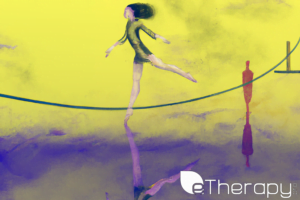The Connection Between Food and Mood
Diet And Mental Health:
Let food be thy medicine and medicine be thy food. – Hippocrates
Many of us have felt the short-term effects of eating certain foods. Remember the happiness from a bar of chocolate? Or the sluggishness after a large meal? These aren’t coincidences. What we eat directly impacts how we feel, both immediately and over the long term.
The Science Behind Food and Emotions
When we eat, we’re not just feeding our bodies. We’re also feeding our brains. The brain needs a mix of nutrients to function properly. Nutrients like omega-3 fatty acids, complex carbohydrates, and amino acids are vital. They help in producing neurotransmitters, which are chemicals that control mood.
Key Nutrients for Brain Health
- Omega-3 Fatty Acids: Found in fish like salmon, they support brain function and reduce depression.
- Amino Acids: They’re the building blocks of protein and help produce neurotransmitters.
- Complex Carbohydrates: Foods like whole grains boost serotonin, often called the “feel-good” hormone.
The Complex Interplay Between Diet and Mental Health
Diet and mental well-being are intricately intertwined. The foods we consume not only influence our physical health but also our mood, emotions, and overall mental health. While some diets can invigorate our minds, others might leave us feeling lethargic or clouded.
The Psychological Impacts of Popular Diets
What you eat not only affects your body but it also influences your brain. Food is fuel for both. – Dr. Uma Naidoo, Director of Nutritional & Lifestyle Psychiatry at Massachusetts General Hospital.
Mediterranean Diet: This diet, emphasizing fruits, vegetables, whole grains, and healthy fats like olive oil, has long been associated with heart health. Recent studies also indicate its potential in reducing the risk of depression and enhancing cognitive function.
Ketogenic Diet: Predominantly low in carbs, the ketogenic diet is known for its weight loss benefits. However, some individuals might experience a “brain fog” during the initial stages due to the body’s adjustment to burning fat for fuel.
Vegetarian/Vegan Diet: While plant-based diets can be abundant in various nutrients, they might lack essential vitamins like B12 unless carefully planned. This vitamin is vital for brain health and its deficiency can lead to mood disturbances.
Paleo Diet: Based on the presumed diets of our ancestors, the Paleo diet prioritizes lean meats, fish, fruits, and vegetables. Some advocates report enhanced clarity and energy, though comprehensive studies on its direct impact on mental health are limited.
Embracing Foods that Uplift the Spirit
Understanding the diet-mental health link is enlightening, but actionable steps in daily life are what bring about change.
Guidelines for a Mentally Nourishing Diet
Start with Breakfast: Kickstart your day with a nutrient-rich breakfast. Oatmeal topped with berries, nuts, and a drizzle of honey is not only tasty but also mood-enhancing.
Hydration Matters: A dehydrated brain can’t function optimally. Drinking adequate water maintains cognitive function and mood balance.
Intelligent Snacking: Replace sugary treats with almonds, walnuts, or fresh fruits. Your brain will thank you.
Omegas for the Brain: Omega-3s are brain boosters. If seafood isn’t your choice, turn to flaxseeds, chia seeds, or walnuts.
Balance Sugar and Caffeine: A small dose might uplift you, but excess can crash your mood. Moderation is key.
Power Foods for a Positive Mood
Bananas: A rich source of vitamin B6, they aid in serotonin production, uplifting your mood.
Spinach: Loaded with iron, spinach can drive away fatigue and keep irritability at bay.
Yogurt: The gut-brain connection is profound. Probiotics in yogurt can boost gut health, which in turn can positively influence mood.
Dark Chocolate: Rich in flavonoids, it can enhance mood and combat stress.
Berries: Blueberries, strawberries, and raspberries are packed with antioxidants, potentially aiding in reducing oxidative stress and inflammation, factors linked to mood disorders.
The Holistic Approach to Mental Health
Diet undeniably influences mental health, but it functions within a broader context. For optimal mental well-being, a comprehensive, holistic approach is needed.
The Synergy of Exercise and Mental Health
Physical and Mental Integration: Physical activity isn’t just about maintaining a healthy weight or building muscles. It’s also about brain health. Exercise releases endorphins, often referred to as “feel-good” hormones, which can act as natural painkillers and mood elevators.
Routine Matters: Whether it’s a brisk walk in the park, a 30-minute jog, or a yoga session, consistent physical activity can foster resilience against stress and anxiety.
The Brain’s Fitness: Aerobic exercises, in particular, have been shown to increase the size of the hippocampus, the brain area involved in memory and learning.
The Crucial Role of Sleep
Restorative Power: Sleep is the body’s natural way of healing and rejuvenating. A lack of it can exacerbate feelings of anxiety and depression, making it harder to cope with daily stresses.
Sleep Hygiene: Maintaining regular sleep schedules, creating a calming bedtime routine, and ensuring a conducive sleep environment are crucial. It’s not just about the quantity, but also the quality of sleep.
Mind-Diet-Sleep Connection: Poor dietary choices can disrupt sleep, while good sleep can make one more receptive to healthier food choices, demonstrating the intricate connection.
Stress Management for a Balanced Life
Mindfulness and Meditation: Engaging in meditation or deep-breathing exercises can offer an oasis of calm amidst chaos. It helps to center the mind and reduce the harmful effects of prolonged stress.
Time Management: One of the biggest contributors to stress is feeling overwhelmed. Proper organization and prioritization can alleviate much of this pressure.
Seeking Support: Whether it’s talking to a friend, joining a support group, or consulting a therapist, sharing and processing feelings can mitigate the negative impacts of stress.
Professional Intervention: A Vital Consideration
It’s crucial to recognize when professional help is required. Persistent mood disturbances, prolonged periods of sadness, or drastic behavioral changes aren’t just about diet or routine. They might indicate underlying mental health disorders. Consulting healthcare professionals ensures that one receives the necessary support and guidance. Remember, seeking help is a sign of strength, not weakness.
Conclusion Of Diet and Mental Health
The saying “You are what you eat” holds more truth than many realize. By making mindful food choices and understanding the profound link between nutrition and mental health, we can pave the way for better mental well-being. Incorporate mood-boosting foods, stay hydrated, and remember the importance of a balanced lifestyle. Your mind and body will thank you.










